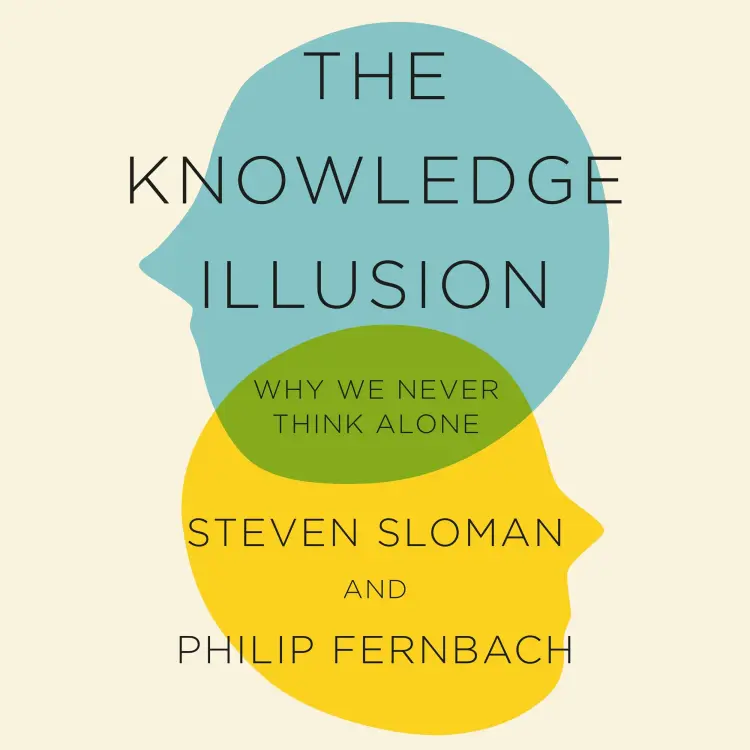
The Knowledge Illusion
Steven Sloman
Unabridged
9 hours 52 minutes
Note: Costs may be incurred for playing the audio books or audio plays on the respective platforms, e.g. Spotify. Lismio has no influence on which audiobooks and audio plays are available on the service.
Some articles contain affiliate links (marked with an asterisk *). If you click on these links and purchase products, we will receive a small commission at no extra cost to you. Your support helps to keep this site running and to continue creating useful content. Thank you for your support!
Unabridged
9 hours 52 minutes
Note: Costs may be incurred for playing the audio books or audio plays on the respective platforms, e.g. Spotify. Lismio has no influence on which audiobooks and audio plays are available on the service.
Some articles contain affiliate links (marked with an asterisk *). If you click on these links and purchase products, we will receive a small commission at no extra cost to you. Your support helps to keep this site running and to continue creating useful content. Thank you for your support!
From the publisher
Human reasoning is remarkably shallow - in fact, our thinking and justifications just scratch the surface of the true complexity of the issues we deal with. The ability to think may still be the greatest wonder in the world (and beyond), but the way that individuals think is less than ideal. In The Knowledge Illusion, Sloman and Fernbach show that our intelligence resides not in individual brains but in the collective mind. To function, individuals rely not only on knowledge that is stored within our skulls but also on knowledge stored elsewhere, be it in our bodies, in the environment or especially in other people. Put together, human thought is incredibly impressive, but at its deepest level it never belongs to any individual alone. And yet the mind supports the most sublime, incredible phenomenon of all: consciousness. How can any of this be possible with a mind that is so imperfect? This is one of the key challenges confronted in this book. The Knowledge Illusion ties together established scientific facts whilst also considering what the mind is for. Understanding why the mind is as it is, and what it is for, will show why we need to consider it as extending beyond our skulls; why we should think about 'the mind' as far more than an extension of the brain but as an emergence from multiple brains interacting. Simply put, individuals know relatively little, but the human hive that emerges when people work together knows a lot.















